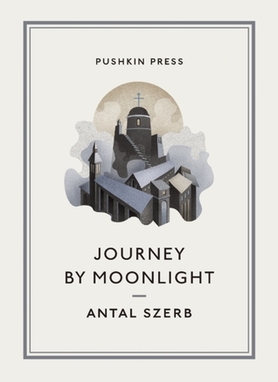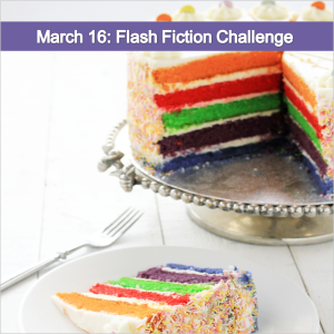| Mihály is on honeymoon in Italy when he bumps into János, an old school friend who, when they last met in London, stole his gold watch. The chance encounter throws up memories of his youth, an extended adolescence of irresponsibility under the influence of the charismatic Tamás, and his sister, Éva. The following day, en route to Rome with his wife, he steps down from the train to grab a coffee. Inadvertently – or perhaps with unconscious intention – he boards the wrong train just as it’s pulling out of the station. Disembarking in Perugia, he realises that he’s been given the perfect opportunity to separate from his wife. |
Mihály’s desire to exit his own life is a theme I’ve explored in my short story Doctoring, recently republished by Red Fez. But I wasn’t sure I got what made the ultimate exit, through death, so attractive. I can appreciate the draw of suicide for those enduring unbearable suffering; but Mihály and his friends were privileged both through class and education. I can recognise the childish and adolescent toying with themes of mortality, romanticised in stories such as Romeo and Juliet, or as an extreme form of transformation, Catholicism’s notion of swapping this life for a better one, both of which feature in my debut novel, Sugar and Snails. I was also conscious of Freud’s notion of the death instinct which I’ve never completely understood. But the concept put forward in Journey by Moonlight seems different by virtue of the young people’s eroticism of death.
On initial reading I didn’t pick up much of the humour of this novel either but, fortunately, reading it along with my book group meant they were able to point me to some amusing sections. We also had an interesting discussion on whether or not we believe in the death drive. If you’re a bit concrete in your literary interpretations as I can sometimes be, this might be a good novel to read along with a group.
Antal Szerb was born in Budapest in 1901 and, although of Jewish descent, a lifelong Catholic. Sadly that did not prevent him being persecuted for his Jewish ancestry until his tragic death in a forced labour camp in 1945. Originally published in 1937, the novel seems to skirt the rise of fascism, apart from the odd oblique reference, although J at my book group suggested that Mihály’s terrifying sensation of standing on the edge of a whirlpool might also allude to the political threat.
With no previous experience of Hungarian literature, despite the honour of having had a couple of my short stories translated into Hungarian, I was pleased to have the opportunity to begin my acquaintance. Thanks to Pushkin press for my review copy and to Len Rix for the English translation.
Over at the Carrot Ranch this week, Charli Mills is indulging in reminiscence not so much in nostalgia but in celebration of how much our community has grown. All it took was just one blogger to connect her to another; all it took was just one attempt to reach of us to develop the flash-fiction habit. (My just one was the wonderfully inspiring Norah Colvin, as she was for many others; my first 99-worder was, perhaps surprisingly for me, a fictional memoir which I likened to growing bonsai in my shock at producing something so small.) There are full-size trees in my response to the 99th 99-word challenge on the subject of just one.
As with the monster prompt, it took me some time to find what I wanted. I’m constitutionally pulled towards the metaphorical bad apple or, as in Journey by Moonlight, the suicidal youth who infects the group. But I pushed myself to explore just one as a force for good; so here it is, and I get a bonus point for including cake!
Apple Harvest
| Students camping in the meadow signalled every summer’s end. By day stripping trees in the orchard. By night songs round the campfire, tiptoeing off to tents two by two. When I was small, they’d let me sing along. Now I’m big and clumsy, Mother keeps me in the kitchen, sorting the good apples from bad. But a cake’s arrived for someone’s birthday; I’m to take it down and come straight back. “Stay a moment!” His bronzed hand on my shoulder. “At least have a slice of cake.” Just one smile but it’ll see me through the winter. Just one. |























 RSS Feed
RSS Feed





















